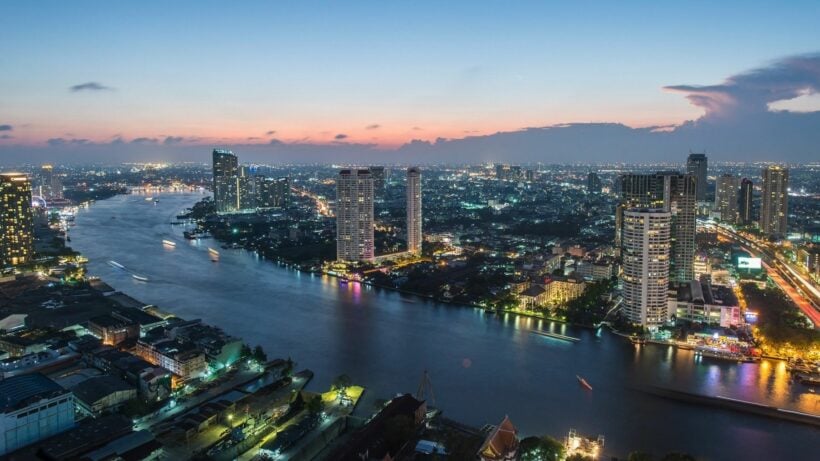Bangkok is in the middle of a battle between the Chao Phraya and Gulf of Thailand

The natural ebb and flow, and the eternal battle between waters flowing down the Chao Phraya and up from the sea, may affect Bangkok’s tap water supply. This year the water flowing down the mighty river may not counter the water trying to flow up towards the capital from the Gulf of Thailand. The slow sinking of Bangkok (the capital is sinking by up to two centimetres each year), and rise of the ocean sea levels through climate change, will make the situation more challenging down the track.
The Office of National Water Resources is keeping a close watch on the intrusion of seawater into the Chao Phraya River this year, to the extent that it may affect the potable water supply where it will start to discolour and turn brackish.
ONWR secretary-general Somkiat Prajamwong said that they have been coordinating with the Royal Irrigation Department and the Electricity Generating Authority of Thailand to increase the release of water from four main reservoirs by about 10 million cubic metres a day until January 5, 2020, in order to flush seawater out of the river. But he admits that there might not be sufficient flow from the reservoirs, namely Bhumibol, Sirikit, Kwae Noi Bamrungdaen and Pasak, to have the desired effect.
Water is drawn from the Chao Phraya River at Samlae in Pathum Thani province into Klong Prapa for treatment and distributed to consumers in Bangkok and its suburbs.
Sources at the ONWR say that the combined volume of usable water in all reservoirs across the country, estimated at 260 billion cubic metres, has been falling steadily since the beginning of this year due to drought, which could be worse than that in 2015. Data from NASA shows that the Earth is experiencing the hottest period in 120 years.
The four main reservoirs currently contain a combined volume of 4.461 billion cubic metres of usable water, but the expected demand for consumption and ecological preservation is estimated at 5 billion cubic metres.
SOURCE: Thai PBS World
Latest Thailand News
Follow The Thaiger on Google News:


























